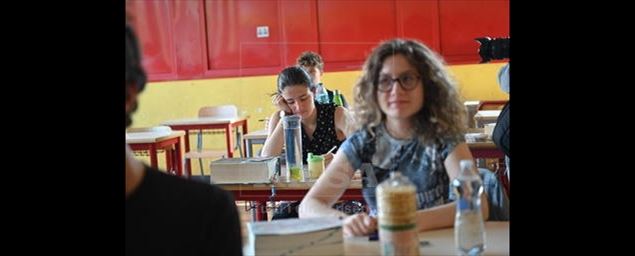There is something new in the air today, or rather something ancient! The words of the incipit of Giovanni Pascoli’s beautiful poem, The Kite, seem to me to go very well with Parliament’s definitive yes to the school decree. The decree establishes the issuance, together with other changes, some of which are significant, of the new final exam for the secondary school curriculum. Until yesterday it was called “state exam”, from today it goes back to being “maturity exam”. An important and historical term that smacks of a return to the past, or rather to the ancient!. Perhaps in the hope that by changing the name, we can restore dignity, seriousness and clarity to this rite of passage that we all know from our own experience, that of our children or our grandchildren. And, listening to Minister Valditara’s statements, it certainly seems like this: «This is an important turning point, he declared Minister Valditara. With this reform we give meaning to the Maturity, restoring value to a decisive step in the educational path of students, reaffirming the principles of merit, commitment and individual responsibility”.
Going into the merits of the changes, which at first glance seem to want to discourage the “silent scenes” seen in some oral exams last July, for which from next year you will fail, we discover that first of all there is a “slimming” of the exam commissions. In fact, we go from the current seven members (six commissioners plus the president) to five. The tests will always consist of two papers on the relevant subjects and the oral interview will focus on four identified disciplines every year by the Ministry, in conjunction with the choice of the subject of the second written test. It is clear that this slimming cure was not created to raise the bar of student preparation, but rather to contain state expenses. Because if we really want to talk about merit, are we sure that reducing the oral exam to four subjects is the right way to evaluate a student’s maturity? I have been teaching for 35 years now and, including my final exam, I have seen almost every formula possible. My exam already included two written tests and four oral subjects: one chosen by the candidate, the other by the commission, only one internal member and the hope of a 36/60… and then the coveted maturity, told in many films. Then came the third test, the essay and the new name: “State exam”. Subsequently the third test was eliminated, and from 2017 also the essay, replaced by a discussion starting from an idea chosen by the commission.
Today Minister Valditara’s reform really seems to bring us back to maturity of the Seventies and Eighties: a real return to the past. The declared intention is to make the exam more focused and in-depth, in the name of greater seriousness, avoiding, as stated in the documents of the Ministry of Education, “the dispersiveness of an excessively broad interview”. However, that conversation really had the merit of allowing the most prepared and studious kids to express their knowledge in a transversal and multidisciplinary way, bringing out the true maturity they had achieved.


